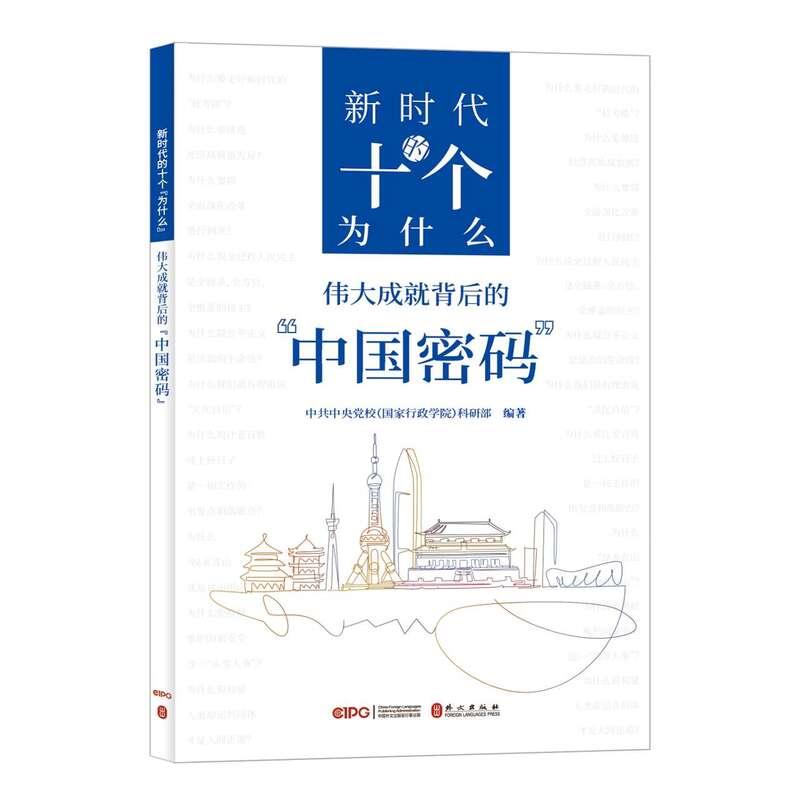Secrets for the epic achievements in the new era

The book "Ten Fundamental Questions Since 2012" is written by teachers from China National Academy of Governance. [Photo provided to China.org.cn]
Over the past decade, China has fully implemented Xi Jinping Thought on Socialism with Chinese Characteristics for a New Era, adopted a number of strategic measures, developed a range of transformative practices, and made a series of breakthroughs and landmark advances. In doing so, China has withstood risks, challenges, and trials in politics, economics, and environmental sustainability, secured historic achievements and seen historic changes, and gone on a new journey toward building a modern socialist country in all respects.
How has China achieved such tremendous progress in just over a decade? The book "Ten Fundamental Questions Since 2012" written by 10 promising young teachers from China National Academy of Governance (CNAG) reveals the secret. It includes 10 crucial spheres of contemporary governance of China vividly reflecting the great achievements and historic changes of the new era since 2012: progress in politics, economics, culture, society, and environmental sustainability, Party governance, overall and deeper reform, law-based governance, safeguarding state security, and foreign affairs.
This book is written from multiple perspectives. (1) First-person narrative: The authors employ this narrative angle on many occasions, such as Zheng Qi's experience after the college entrance exams, Li Zhiming's personal experience of poverty alleviation in Yunnan, Li Yuanyuan's "Forbidden City Run," and Wang Ru's "Meme of the Haze." Through their own experiences, their narrations are much more vivid and authentic to the readers. (2) Second-person narrative: Li Yuanyuan's narration begins with, "What is China? If someone were to ask you this question, how would you respond?" Zheng Qi uses this narrative perspective when describing the national-wide support for Hubei at the beginning of COVID-19. Jin Chengbo also applies this approach when explaining the Civil Code of the People's Republic of China. The authors use this perspective to directly address their audience like a face-to-face conversation. (3) Third-person narrative: To make their narrations immune from subjectivity, all authors of this book employ this perspective most frequently.
This book is made vivid and interesting by many stories. For example, the story of the Party secretaries of all five levels responds to the question: why does the CPC have such strong ability to organize and carry out the mobilization and coordination of such massive resources? Another one describing Zhu Guoping's Hongqiao Pingju Studio illustrates the practice of whole-process people's democracy in China, which builds a direct line for people to more actively participate in political affairs. In Song and Zhou's personal injury lawsuit, China's efforts in promoting social equity and justice are demonstrated in this small case. Facts speak louder than words, and readers will have a deep insight into China's progress in different aspects through these genuine stories.
This book is historically accurate with statistics from reliable sources. Detailed statistics are presented in various fields, such as China's R&D spending, private enterprises, protection of cultural relics, and people's wellbeing. In so doing, this book offers a reasonable explanation of China's tremendous achievements in the past decade ‒ building on past success to further advance the core cause. The international community will know more about China's ideas and solutions through concrete examples and intensified analysis, thereby understanding Chinese spirit and wisdom.
After reading this book, readers can be fully aware that the great changes in the past decade are a towering monument in the history of the CPC and China. Those achievements have a significant impact on the pattern of global development, and have laid a more solid political, material, and institutional foundation for the second centenary goal and the rejuvenation of the Chinese nation.
China's stories are presented in a new discourse to an international audience. Through a wide range of perspectives ‒ politics, economics, culture, social affairs, governance, national security, eco-environment, and foreign affairs, the world will see an accurate, multidimensional, and panoramic image of China.
Li Weibin is president of Sichuan Applied Languages Association.
Opinion articles reflect the views of their authors, not necessarily those of China.org.cn.